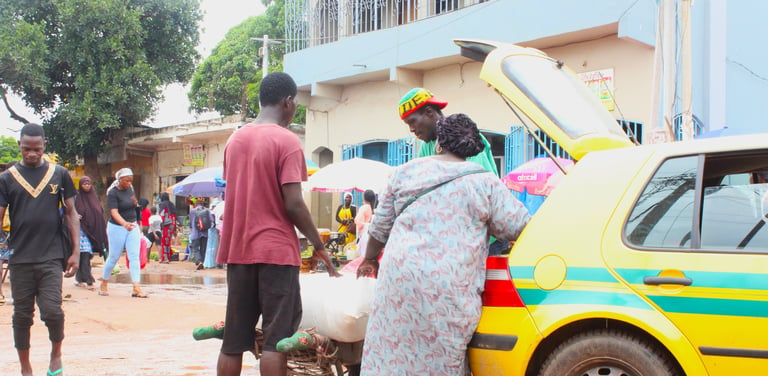Effects of Tax on Inflation in The Gambia
FINANCETAXINSIGHTS


Analyzing The Gambia's tax policies, particularly VAT and customs duties, and their impact on inflation and increasing living costs.
When we talk about taxes in The Gambia, most people think of government revenue first, but for ordinary citizens, the bigger issue is how those taxes push up the cost of living. VAT and customs duties are supposed to help the economy grow, yet in practice, they often make basic goods more expensive. The real question is whether our tax system is helping people or quietly squeezing them.
VAT and Everyday Prices
In 2012, The Gambia transitioned from a sales tax to a 15% Value Added Tax. On paper, it sounded fair; everyone pays a bit more when they consume. But in reality, businesses usually pass that cost straight to buyers. So, every time you go to the market, you’re footing the bill.
Take rice, for example. In 2022, a bag cost about D1,250. By 2025, it was closer to D1,850. Sure, global prices play a role, but VAT and other indirect taxes have made things worse. Since VAT hits everyone equally, low-income families, who already spend most of their money on food, feel it the hardest.
Customs Duties and Imports
Then there are customs duties. Because The Gambia relies so heavily on imports, every tariff charged at the port eventually shows up in shop prices. Whether it’s rice, oil, sugar, or even simple household items, traders have no choice but to add those costs on.
The cycle is rough: importers pay heavy fees, small businesses struggle to compete, and in the end, consumers face higher bills at the market. With so much dependence on imports, duties practically guarantee higher prices.
The Human Side of Rising Costs
All of this adds up to real pain for families. People are spending more of their income just on food and transport. Small traders, from vegetable sellers in Brikama to tailors in Kanifing, are caught in the middle. Their costs go up, their customers complain about higher prices, and profit margins shrink. The tax system that’s supposed to keep the country running is, ironically, making survival harder for the very people it’s meant to support.
What Can Be Done
The government has options. One would be lowering VAT on essential items like rice and cooking oil, so people can afford the basics. Another would be offering selective tax breaks or waivers on key imports to stop prices from spiraling.
But longer-term, The Gambia has to reduce its reliance on imports. If we invest in farming, small industries, and local businesses, the country could grow more of what it eats and produce more of what it consumes. That way, taxes wouldn’t weigh so heavily on households.
Wrapping Up
Taxes are necessary—no country can function without them. But if they’re not designed carefully, they end up hurting the poorest households most. Right now, VAT and customs duties are feeding inflation and making life tougher for ordinary Gambians. By rethinking tax policies and building up local production, the government can strike a better balance: collecting revenue without pushing families and small businesses to the breaking point.


